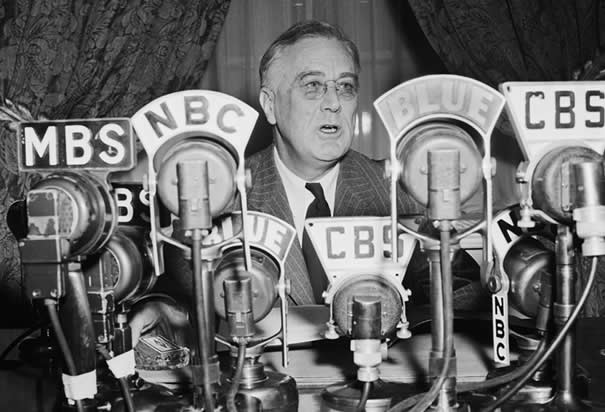
The first Securities Act was signed into law by President Roosevelt on May 27, 1933. At the signing, Roosevelt stated that the law was “intended to correct some of the evils which have been so glaringly revealed in the private exploitation of the public’s money” [1].
Roosevelt was referring to such things as the sale of fraudulent securities, trading on inside information, and secretive trading between small groups of investors to drive up stock prices. Many of these Wall Street misdeeds came under the public spotlight during the 1933 Pecora Commission investigations (led by New York attorney Ferdinand Percora, Chief Counsel to the U.S. Senate’s Committee on Banking and Currency) [2]. The Securities Act of 1933 had two main objectives: “require that investors receive financial and other significant information concerning securities being offered for public sale; and prohibit deceit, misrepresentations, and other fraud in the sale of securities” [3].
New Deal policymakers understood that the Securities Act of 1933 would not be enough to reign in Wall Street wrongdoing. Hence, they crafted the Securities Exchange Act of 1934, signed into law by President Roosevelt on June 6, 1934 [4]. The law created the Securities and Exchange Commission (SEC) and gave the SEC the power to “register, regulate, and oversee brokerage firms, transfer agents, and clearing agencies as well as the nation’s securities self regulatory organizations” (e.g., the New York Stock Exchange). The law also gave the SEC “disciplinary powers” and the authority to “require periodic reporting of information by companies with publicly traded securities” [5]. The first chair of the SEC was Joseph Kennedy, father of future president, John Kennedy.
Most leaders of finance were opposed to regulatory oversight by the federal government, and there were some hysterical claims of such oversight being a prelude of communism [6]. They thought self-regulation was the best response to the Stock Market Crash of 1929. President Roosevelt was not impressed, writing to his Brain Truster Adolph Berle, “As you and I know, the fundamental trouble with this whole Stock Exchange crowd is their complete lack of elementary education. I do not mean lack of college diplomas, etc., but just inability to understand the country or the public or their obligation to their fellow man. Perhaps you can help them acquire a kindergarten knowledge of these subjects” [7].
The SEC still exists and believes that: “… all investors, whether large institutions or private individuals, should have access to certain basic facts about an investment prior to buying it, and so long as they hold it” [8]. Nevertheless, SEC oversight weakened from the 1970s onward, and a series of scandals hit the stock markets in succeeding years, from Michael Milken’s junk bonds of the 1980s to Bernard Madoff’s $65 billion fraud in the 2000s. Many observers felt that the SEC had fallen asleep on its watch [9].
Sources
(1) “Statement on Signing the Securities Bill,” The American Presidency Project, University of California, Santa Barbara, https://www.presidency.ucsb.edu/ws/index.php?pid=14654, accessed April 27, 2015. (2) See, e.g., Corinne Crawford, “The Repeal of Glass-Steagall Act and the Current Financial Crisis,” Journal of Business and Economics Research, Vol. 9 No. 1 (January 2011), pp. 127-128, https://www.unarts.org/H-II/ref/949-3747-1-PB-1.pdf (accessed April 27, 2015) and Michael Hiltzik, The New Deal: A Modern History, New York: Simon & Schuster, Inc., 2011, pp. 80-92. (3) “The Laws That Govern the Securities Industry,” U.S. Securities and Exchange Commission, https://www.sec.gov/about/laws.shtml, accessed April 27, 2015. (4) See note 2, Hiltzik at p. 186. (5) See note 3. (6) See note 2, Hiltzik at pp. 184-186. (7) Ibid., at p. 175. (8) “The Investor’s Advocate: How the SEC Protects Investors, Maintains Market Integrity, and Facilitates Capital Formation,” U.S. Securities & Exchange Commission, https://www.sec.gov/about/whatwedo.shtml, accessed April 27, 2015. (9) Joseph Stiglitz, Freefall: America, Free Markets, and the Sinking of the World Economy, New York: Norton, 2010.
« Back to Glossary Index